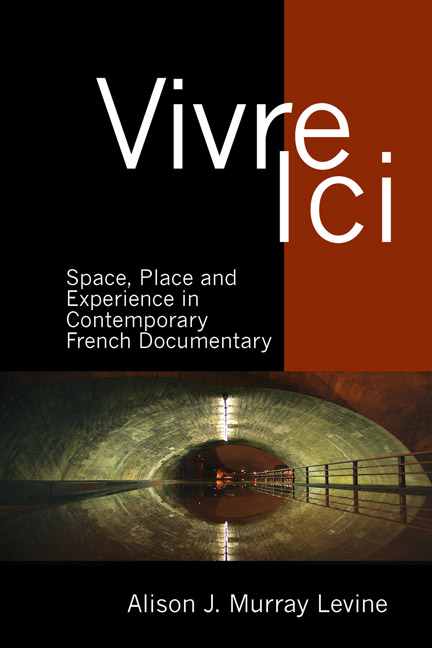4 - School
Summary
Imagine there is a thick window separating us. And you want to talk to Julvic, Ouhaida, and me. But your words have to get through that very thick window, so you need to speak loudly.
—Sandrine Montin, teacher featured in Enfants valises (Xavier de Lauzanne, 2013)As she speaks the above words, middle school teacher Sandrine Montin encourages a young woman in her FLER class (Français langue étrangère renforcée) to read a poem loudly enough to get through the imaginary window separating her from her audience. Both she and the young woman are framed in the shot, in the background and the foreground respectively. A rack focus partway through the shot blurs Montin and pulls the student into sharp focus. With this move, it is almost as if an invisible pane of glass between the two snaps into view. The viewer becomes acutely aware of the difficulty of moving words from speaker to listener, through the thick glass (albeit metaphorical) that separates subject positions. This pane of glass, one might argue, could also serve as a metaphor for the film frame in documentary. As we have seen in this book, the frame can seem to be filled by a more or less permeable membrane between the space where the film subjects live and the space inhabited by the viewer. In this chapter, the film subjects “inhabit” French public schools. Whether reciting a published text, as in the case of the young woman reading to Montin above, speaking their own words, or going about their daily activities, the students and teachers in these films share their experiences within the space of the French school, and the viewer is invited inside.
In previous chapters, I focused on non-human experience in environmental documentaries and mobile self-expression in autobiographical essay films. The films in this chapter, and in those that follow, turn more explicitly towards the experience of human others in different kinds of spatio-temporal settings: schools, farms, and social and geographical edges. This chapter considers five films from among the rich and diverse archive of French documentaries devoted to school experience from the past 20 years.
- Type
- Chapter
- Information
- Vivre IciSpace, Place, and Experience in Contemporary French Documentary, pp. 101 - 132Publisher: Liverpool University PressPrint publication year: 2018

